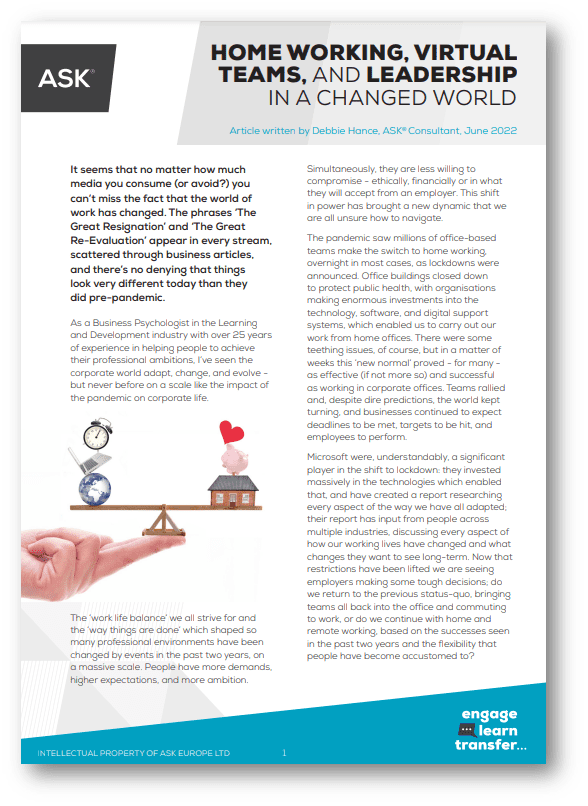The antidote to a toxic culture is better behaviour
Can a organisation survive a toxic culture?
They say culture eats strategy for breakfast, and they may have a point. But, like breakfast, culture has ingredients: the behaviours that create the atmosphere and patterns that everyone works within. Think for a moment about your morning muesli, and contemplate that old adage – “One bad apple…” It seems the staff at Business Grapevine might be thinking along similar lines, judging by their article, 5 warning signs of a TOXIC company culture.
For those that might be concerned, here’s the summary checklist:
- A lack of employee motivation
- Inauthentic leadership High turnover rates
- Absenteeism
- Lack of communication
While culture can – indeed, should – be managed, it’s only reasonable to assume that the decision to create a culture with these characteristics is rarely that any intelligent organisation would take, but how many are mindful that these symptoms can arise surprisingly swiftly when behaviour goes either awry or unchecked?
No matter what our staff handbooks and codes of conduct might say, organisations are composed of people, and a degree of irrationality comes with the turf. But that does not mean all is lost. A Strategy & Business article profiling Maryam Kouchaki, an expert in the causes of unethical behavioural, included an important reminder:
”Although we humans may be hardwired to react and behave in certain ways that may not always make us proud, we are by no means a lost cause”
There is always a way back
This is just as well, given some of the findings of a recent McKinsey article, The hidden toll of workplace incivility, which charted some of the impact of toxic behaviours:
- Workplace performance – 47% of those treated poorly deliberately decreased the time spent at work, and 38% intentionally decreased the quality of their work; 66% percent admitted their performance declined
- Employee turnover – people who resign don’t always tell their employers why, but the survey found that 12% left their job because of uncivil treatment
- Customer experience – 25% of those experiencing ‘uncivil behavior’ admitted to taking their frustrations out on customers.
- Collaboration – employees exposed to rudeness are three times less likely to help others and their willingness to share drops by more than half.
If good manners are free, bad manners are clearly extremely expensive. Leaders and managers who are earnest above cost-saving within their organisation might start by looking at the culture they are helping to create. It may be another cliché, but there is a fair bit of truth in the idea that employees do as they do, not as they say they do.
As we say when we talk about our Culture Change programmes:
If you want to change a culture, change behaviours first: the culture will follow. While the first step must be to create a compelling vision of the future and provide an overwhelming rationale for the intended change, to succeed leaders must change both their own behaviours and those of others.
Recent articles from the business and HR magazines and blogs offer plenty of advice that managers and leaders might take on board, even if each tends to focus only on a particular symptom. Neil Morrison hopes for a culture that focuses on potential rather than failings, for example, while Management Today has been keen to tell us Why you should be more self-critical and Farnam Street looked at why Kristina Tippet counsels practising Generous Listening.
In becoming a better manager or leader – and a better instigator of healthy cultural practices – ASK would, however, counsel the wisdom of taking practical steps that provide a clear diagnosis of where changes might most fruitfully be made. Our programmes typically include 360 Degree Feedback, for example, or one of more of a range of Psychometrics, as we understand the vital importance of feedback in providing the personal insights that enable meaningful development. To understand their personal impact and ways in which they might adjust behaviours for everyone’s benefit, managers and leaders need to better understand themselves. To be a better version of their current self, they need to properly understand where their journey is starting from.
If you’d like to discuss ways we can work with your organisation to support you in changing your culture, call us on 01234 75 75 75 or email hello@askeurope.com.




